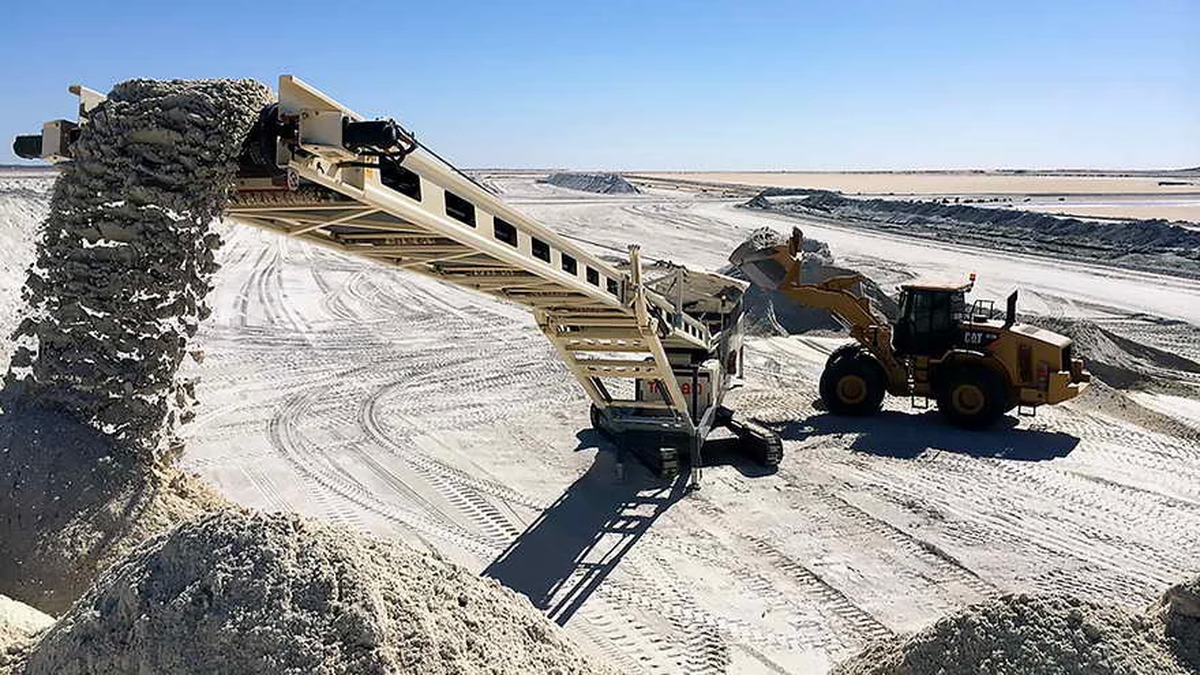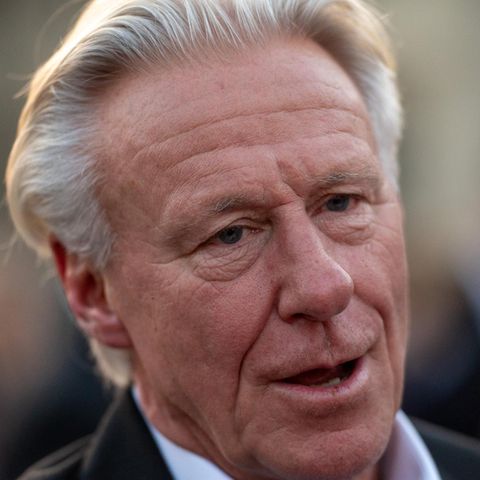“These days we are experiencing difficult times regarding the possibility of passing a wetland law that does not favor us as a region”assured Antonio Marocco, deputy governor of Salta, during the panel “Lithium as an example of consensus”, which he shared with the deputy governor of Jujuy, Carlos Haquim.
“I want to highlight the work of the three governors from the United States who emphasized that this is a matter that we are not going to discuss for now, we are going to abide by what is in the Constitution, which says that the ownership of natural resources it is in the provinces,” Marocco added.
Haquim de Jujuy also expressed himself along the same lines: “You have to be careful when defining wetlands. We spoke with scientists and geologists, and although it is true that there is water where lithium is, they are not wetlands, it is water with a higher salinity than seawater, to consider it flat as a wetland is not the most correct”.
In addition, Haquim said: “That is why we are going to defend it, because it is a contradiction, there is a change in the energy matrix and lithium gives us a possibility, We cannot truncate it with a law of this type, because we would be doing the opposite of what the world asks of us in remediation of climate change”.
WhatsApp Image 2022-09-30 at 1.11.22 PM.jpeg
Along with this definition, the deputy governor of Jujuy mentioned the potential of lithium: “Right now there are two companies, and Exar, which would start producing soon, so the annual production will be 80,000 tons a year. Multiply it by the price, which yesterday rose to US$70,000 a ton, these are staggering figures that will serve the national government in the future in terms of foreign exchange.”
In fact, Last week lithium carbonate reached its all-time high, closing on Friday at 510,000 yuan, equivalent to more than $70,000 in dollars, according to Trading Economics, which marks that in the accumulated price of the year the price climbed 190 %.
In front of the exhibition of the vice governors in the capital of Salta, there were more than 100 executives. Ámbito spoke with the financial executive of a mining company, who preferred to remain confidential, who was in favor of the deputy governors, much applauded at the end of his presentation. “The environmental issue is there, I invite you to the puna, there is no other activity there. Be careful, no one says at any price, there is a vision of mining from 20 years ago, but today mining is technology, and has much more regulated methods, with less use of water than agriculture, ”he said.
On the other hand, from an investment study specialized in corporate finance, they assured: “The wetlands law would be to mining as the forest law to agriculture, it would end up slowing down progress and, at the same time, an attack on environmentalism.” The source, who preferred not to be named, He said that the province is experiencing a “bubble” at the economic level, given the movement there is for lithium. The recommendation they make to investors is that the business opportunity involves being part of the chain as “suppliers”, since the exploitation is done by multinationals.
YPF Lithium
In fact, hours before the start of this convention, the Chamber of Mining Entrepreneurs (CAEM) issued a harsh statement against the wetland law: “There is potential to achieve investments of US$20 billion. This is what is risked when changes in regulations are precipitated that generate uncertainty”.
At the IAEF meeting, executives had the opportunity to submit questions to the panel moderator. And just as the YPF Lithium issue came up, when asked by one of those present, given that it is an issue that “concerns” the private sector, according to what Ámbito found out. When asked how the start of exploitation of YPF Litio affects, the lieutenant governor of Salta answered bluntly: “Bad”. And he added: “It is a personal opinion, not a government opinion. It takes away one of the pillars of investment, which is legal certainty”.
Along the same lines, the deputy governor of Jujuy added: “We do not agree, we invite YPF to be part of the Lithium Table so that our position is clear, that lithium belongs to the provinces, and in that we are not going to give”.
Going forward, there are other concerns as well. On the one hand, employment: “Getting an engineer in Salta does not exist, the mining companies take them all”, said the expert in corporate investments. He estimated that 200,000 professionals will be needed to meet the demand for mining professionals in the north. In addition, there is criticism for access to foreign exchange and taxes: “Taca Taca is stopped here, which is a project of US$4.5 billion in investments,” said the mining executive. In the company where he works, he assured that they lost US$30 million due to late return of VAT.
Source: Ambito
David William is a talented author who has made a name for himself in the world of writing. He is a professional author who writes on a wide range of topics, from general interest to opinion news. David is currently working as a writer at 24 hours worlds where he brings his unique perspective and in-depth research to his articles, making them both informative and engaging.




